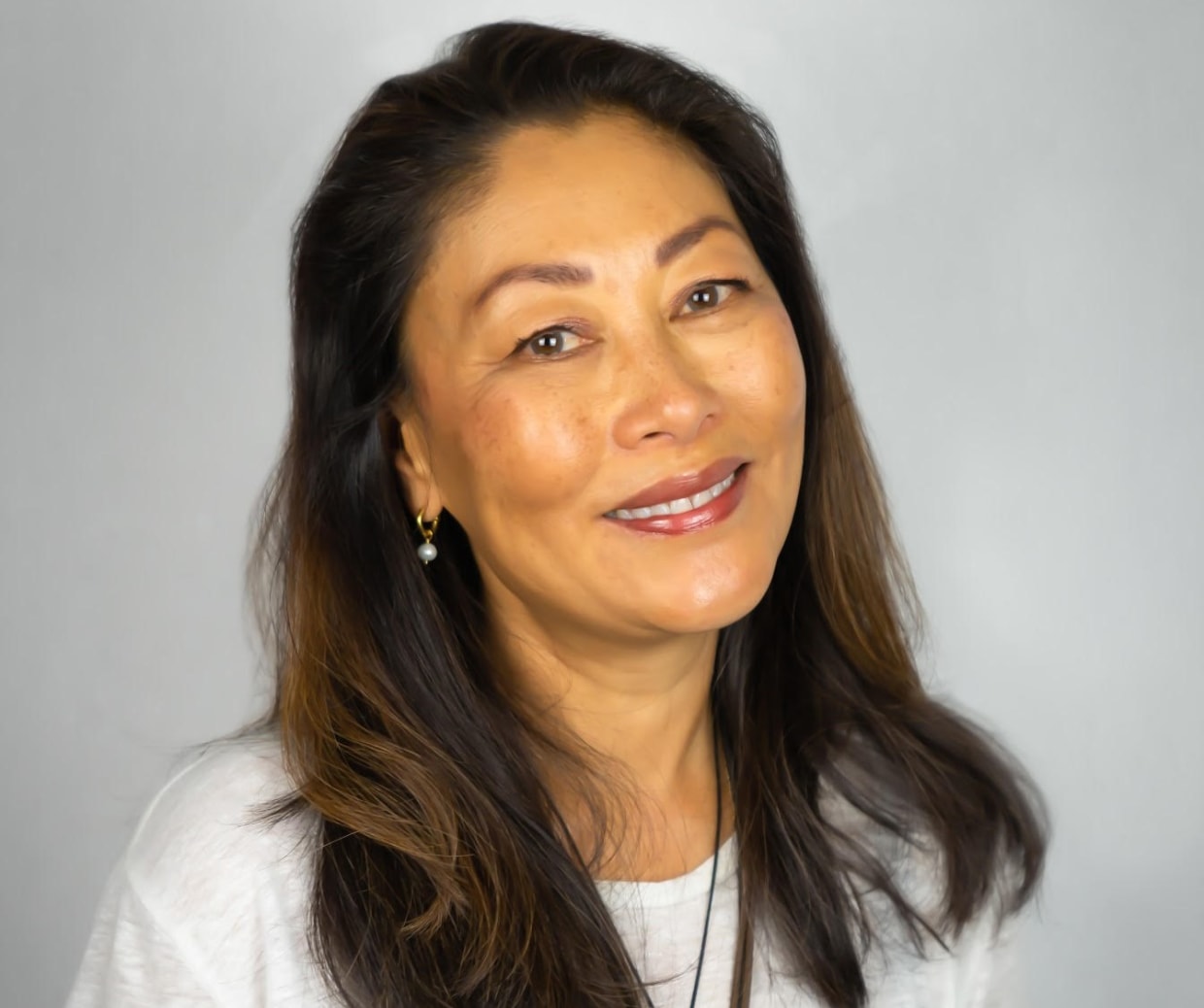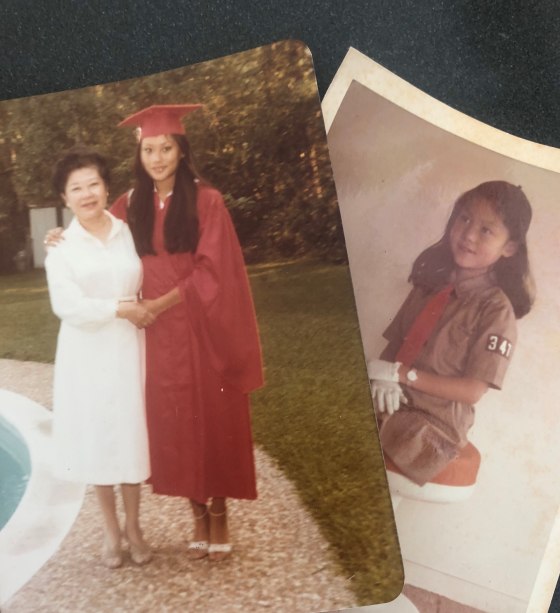Silent no more: The ‘model minority’ is finally speaking out, says CULTIQUE’s Linda Ong on NBC News

Linda Ong is the CEO + Founder of CULTIQUE, the cultural insights and strategy venture of Civic Entertainment Group (Seacrest Global Company)
The recent tragic shootings at the Atlanta massage parlor, which killed eight people ― six of whom were women of Asian descent ― unleashed a tsunami of personal emotions in me. I felt sadness, vulnerability, anger, frustration, and powerlessness. It also whooshed me back to my grade-school self, lying on the pavement of a church playground in Houston, the badge-bedecked sash of my pristine Girl Scout uniform askew. In the aftermath of a sudden and violent beating, my psyche was bruised more than my body, and I lay crouched in a fetal position, trying to understand what I did wrong.
Turns out that being Chinese in Texas in the 1970s was wrong. My assailants, all white girls, were my fellow Girl Scout troop members – not exactly modeling the kind of behavior epitomized by the merit badges we coveted. I won’t repeat the slurs and hateful comments that accompanied the punches and kicks, but that afternoon was my introduction to a lifelong experience learning to deal with all kinds of racism ― from overt and physical to micro-aggressions and stereotyping as a first-generation American of Chinese descent.
And here we are, a year into the Covid-19 pandemic. And violent attacks against Asian-Americans are more rampant than ever.

Linda Ong grew up in Texas in the 1970s.Courtesy of Linda Ong.
Over 3,800 incidents were reported last year through the end of February, according to Stop AAPI Hate. That alarming number doesn’t even factor in the unreported slurs and comments.
The history of racism against Asian-Americans is a long one. Yet this recent violence seems decidedly different. On March 30, just days after Atlanta, a 65-year-old Filipino woman was attacked in broad daylight near Times Square in New York City. And this time, the assailant is being charged with a hate crime.
Important voices, including NBA player Jeremy Lin, author Cathy Park Hong, actor Daniel Dae Kim are speaking out on the issue, after decades of silence. And this week, business leaders from the Asian community from companies like Zoom, Propeller Health, Doordash and Peloton published an open letter in the Wall Street Journal and launched a petition campaign called Stand with Asian Americans. Maybe it was law enforcement’s refusal to call it a hate crime, but it’s mobilizing a broad community that’s never come together before.
Today, we are galvanizing and rallying our networks and allies of all races to help forge our own path to equity. We are speaking out and tweeting and shining a light on harm that has been perpetuated for decades in pop culture: slurs, stereotypes, demeaning tropes, especially those that sexualize (and often demonize) Asian women. Celebrities, brands and companies from Verizon to Silicon Valley VCs are putting their money where their mouths are, pledging millions to causes set up to aid victims, raise awareness, and support the community.
In the aftermath of that assault on the playground, I didn’t know what to call it then, but I know now. Racism. It’s an insidious use of power to denigrate and deny another’s difference. Somewhere on my journey from that afternoon to where I am today, I realized you can’t let other people define you on their terms; you need to set your own.
The lessons I learned along the way evolved into valuable skills that shaped my career as an expert in identity and culture, having worked in the worlds of fashion, entertainment and media. Turns out, I weaponized my issues with racism into my superpowers.
It wasn’t always easy. Being misunderstood was table stakes for me in Texas, where being Asian at that time was so rare, my classmates thought I was “Mexican.” Racist stereotypes were delivered with no malice intended; in so many of those moments, I said nothing, like when my third-grade teacher asked if my parents owned a laundry or a restaurant (I was terribly confused; my parents held advanced degrees in physics and law). Working part-time as a model during college, I regularly cringed at how makeup artists would artificially “enhance” the exoticism of my almond-shaped eyes; it motivated me to move from in front of the camera to behind it, where the real power resides. I didn’t want anyone representing me but me, and through the years I found many paths to doing that; I became an editor, an art director, a producer, a brand strategist, and today, a cultural strategist and advisor to top-tier companies.
In this role, I often advise Hollywood content creators and development executives on creating authentic depictions of cultures and subcultures; this could be for anything as specific as sci-fi fans to streetwear aficionados to Latinx biculturals. So through the years, I’ve seen my share of scripts referring to “a long-legged Asian beauty” or stereotypical Asian characters that either have no agency (the Asian “best friend”) or too much (the “Tiger Mom, the hypersexualized “dragon lady”).
But now, I’m not the only one advocating for change; since the Atlanta shootings, I’m being asked to speak at some of these very same companies to help them responsibly present more “normalized” depictions of Asian-Americans.
For the first time in my life, I’m harnessing my superpowers to engage with the AAPI community and allies. Because the world is finally ready for that conversation. And so am I.
And so can you. Ask your Asian colleagues and friends about their experiences with racism. Many have never shared these, even in our own communities. Question your own thoughts, words, and actions. Support organizations like #StopAAPIHate. And importantly, read up about the long history of discrimination against Asians ― especially women ― or dive into a memoir like Cathy Park Hong’s “Minor Feelings,” which was just awarded the National Book Critics Circle Award.
As misinformation about the coronavirus’ origins in China fuels violent attacks, my personal history with racism is coming full circle. It’s time to step up and weaponize empathy for good. It’s time to unleash and accelerate everyone’s superpowers, starting with my own. How will you use yours?
Linda Ong is the CEO + Founder of CULTIQUE, the cultural insights and strategy venture of CIVIC (a Seacrest Global Group Company). Founded with partner Sarah Unger, the premium boutique crafts bespoke cultural strategies for forward-looking businesses in media, entertainment, tech and consumer spaces. Follow her @lindaong100.
Original article on NBC Know Your Value
